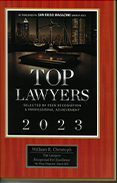Summer should be a fun and relaxing time of year, but that can change very quickly if you are arrested and charged with a DUI offense. These charges can derail more than just your summer, so it is crucial to have the tools and knowledge to avoid them.
For instance, this summer, you might encounter a DUI checkpoint. DUI checkpoints are legal in California, as long as they meet specific requirements, so it is crucial to know what to do if you encounter them.
Knowing the rules of a checkpoint
There are many checkpoint rules that parties must follow. For instance, there are rules regarding notification and location:
- Checkpoints must be advertised in advance, so consider using apps or following the news to know when they are in your area. Here is an example of a recent announcement of a checkpoint in San Diego.
- There should be signage on the road alerting drivers to a checkpoint ahead.
- Checkpoints should be set up in areas with high rates of DUI arrests or accidents.
- They should not create unreasonable delays or hazards for motorists.
At the checkpoint itself, there are specific procedures police must follow:
- Law enforcement agencies must decide on a neutral system for performing stops, like stopping every fifth and sixth vehicle. Officers cannot choose to stop drivers at their discretion.
- Police officers must not detain any driver for an unreasonable amount of time.
- Supervisors must be present to make constitutional decisions.
There are also rules for drivers:
- Drivers have the right to turn around to avoid the checkpoint, but they must do so lawfully and safely.
- They must stop if the police direct them to.
- Motorists can politely decline to answer questions, but they must provide their license and registration.
When you understand what these requirements are, you can feel more confident as you pass through one or take precautions to avoid them.
Defending against charges
If you wind up arrested and facing charges after police stop you at a DUI checkpoint this summer, you can be scared and overwhelmed. However, just like any other charges related to impaired driving, you have the right to defend yourself.










